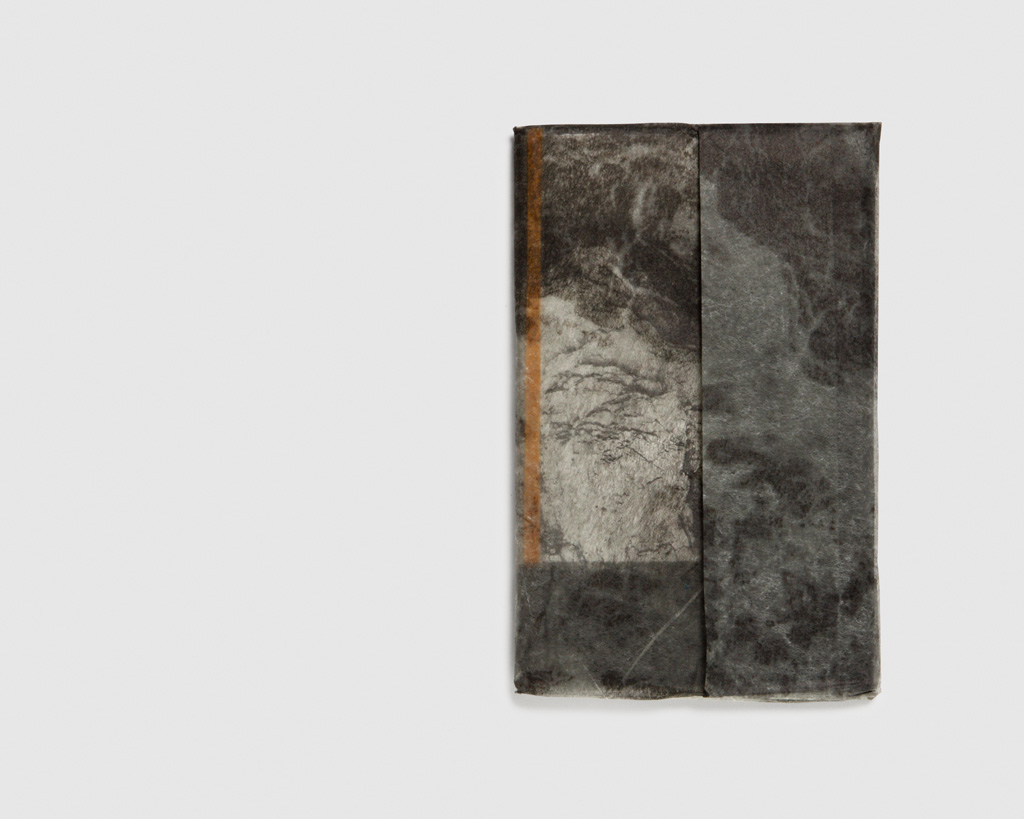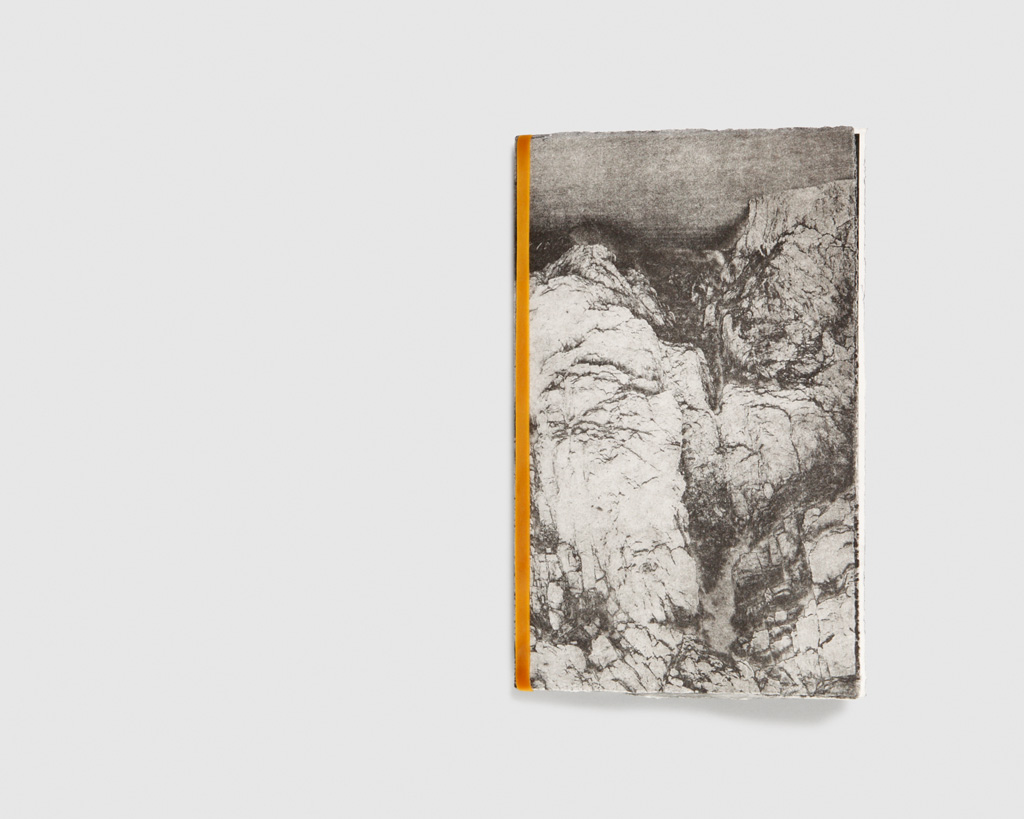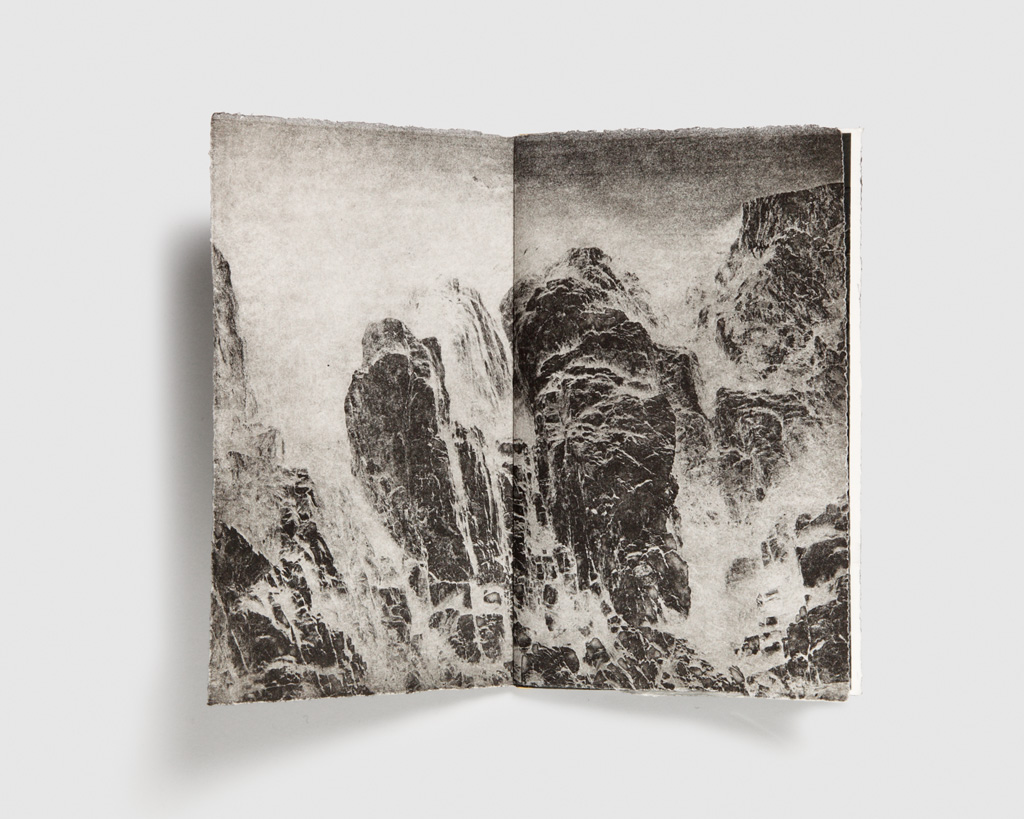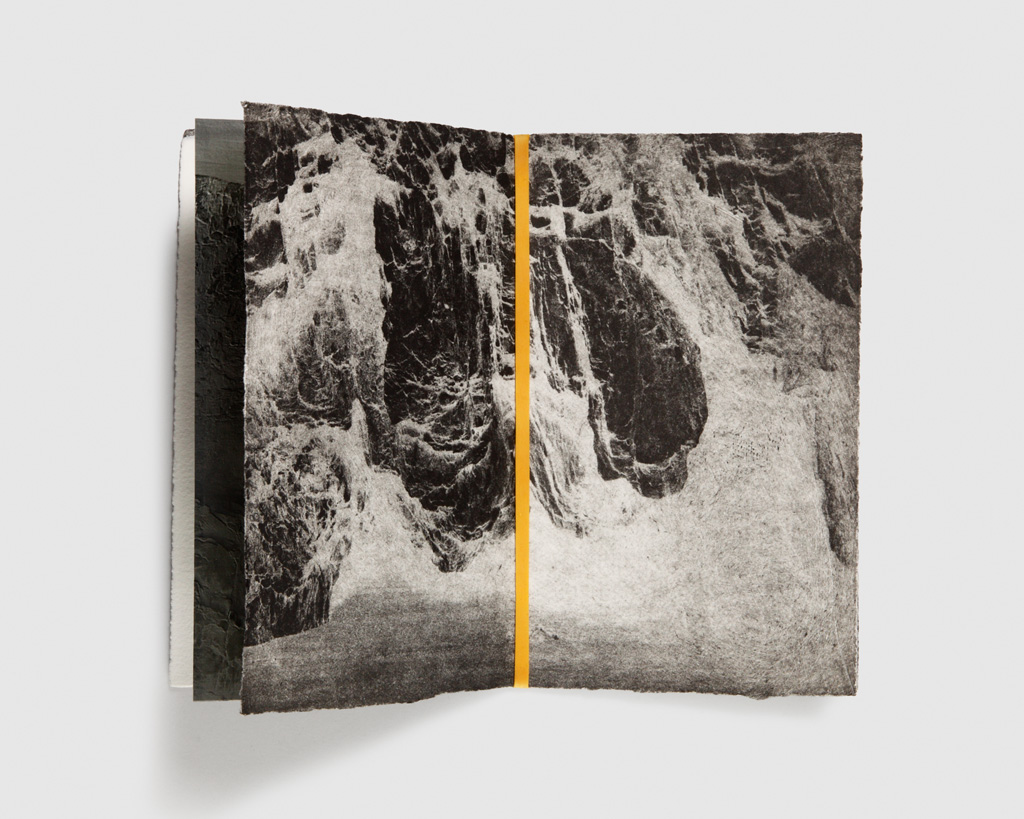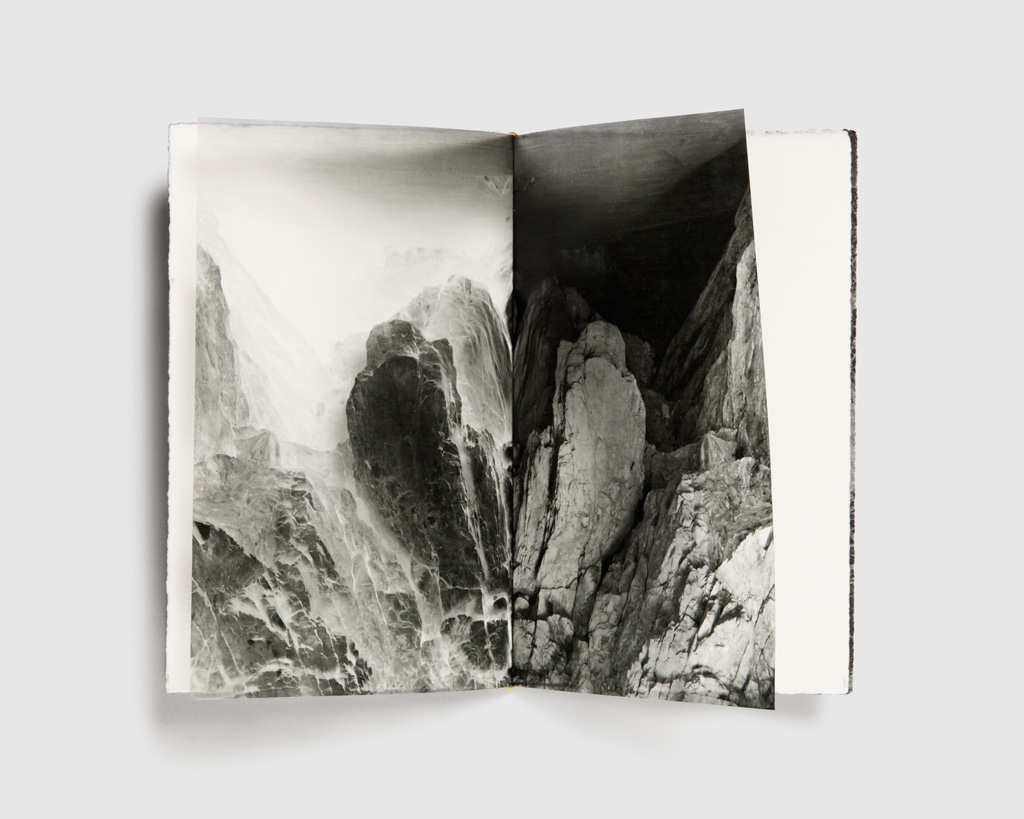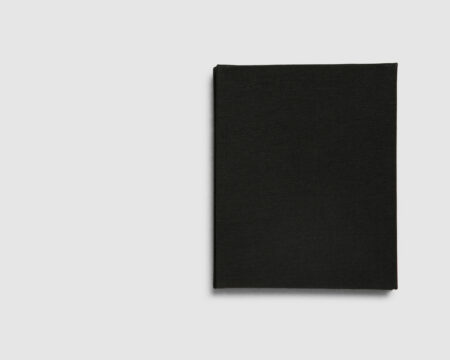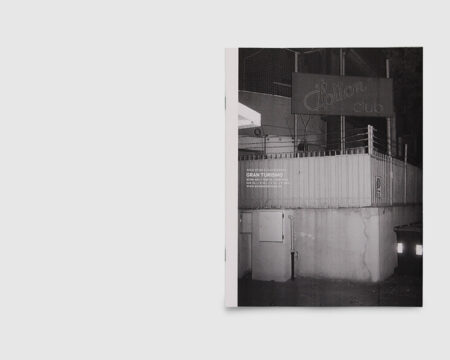Description
‘A Palimpsest, according to the Spanish Academia Real, is a scroll where traces of something ancient show, another writing or drawing, erased for reuse, due to the lack of papyrus. In archeology, a palimpsest is a mix of strata that obscure the origin of the rock.
Both meanings are relevant in Félix Carpio´s Palimpsest. The rock is made visible in all its materiality through the etching paper, in positive and negative. We can feel almost physically the deep dark hollow recessed lines, profound and mysterious between the rocks. The stone in its thousands of layers, carrier of a history as old as the world.
Nonetheless, the paper used by Carpio is virgin. Precious paper of sensual touch, solid and strong, covered by another one – fragile and delicate. It doesn´t show, as we would see in a scroll, the imprint of a previous work. I would like to think of it as a metaphor of a past life, prolonged through steps invisible to our eyes, in an infinite process. In the cave photographed by Carpio the cradle of life is materialized, in its multiple layers, unattainable. In the transparencies we figure a skeleton, a spinal cord. The cave and the mountain that encloses it are witnesses of our history, a safe lock hidden and revealed in Félix Carpio´s photographic engravings.
These five folded pages of Palimpsest carry a convulsive history written in a rhythm which is not that of modern men. Fragile, following its path – with us barely apprehending.’ — Gabriela Cendoya

